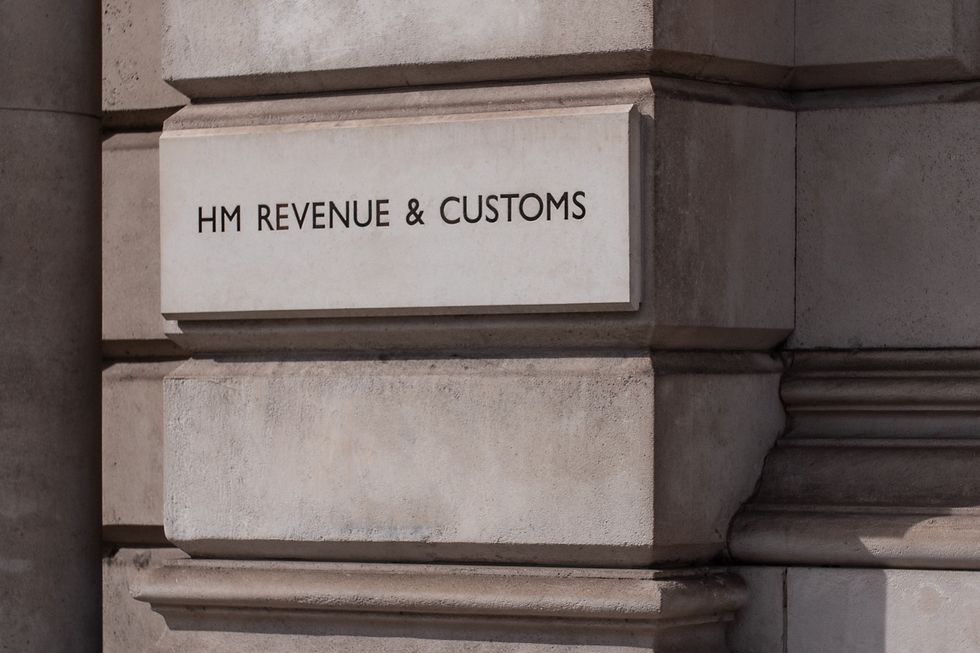Chancellor Rachel Reeves has said she will have to raise taxes in the upcoming Budget
GETTY
Chancellor Rachel Reeves has said she will have to raise taxes in the upcoming Budget in a bid to manage the '£22billion black hole' in the public finances
Don't Miss
Most Read
Trending on GB News
As families fear an inheritance tax raid next month in the Budget, there has been an increase in parents rushing to give money away to their children.
With fears the chancellor will target inheritance tax as a means to raise money for the Treasury, families are left scrambling to protect their wealth.
During Labour's campaign, they pledged to not impose higher taxes on “working people”.
This has left wealthier people anxiously waiting to see if higher taxes could be imposed on them.
Lizzie Murray, of accountancy firm Saffery, said people who had always intended to give money to their children were now accelerating those gifts while the current rules are still in place.
She said: “I’ve got clients with children in their 20s – who would perhaps prefer to wait until the children are in their late 20s or early 30s to make a gift. But they are taking a risk on the child rather than taking a risk on the Government, in the expectation that the tax landscape is likely to get worse from October 30.”

In 2020-21, 1,300 families were forced to pay death duties on cash or property they had received from a loved one, according to a Freedom of Information request
GETTYBritons are often told by experts that they will have to take action and plan ahead if they want to avoid leaving their loved ones with an unexpected tax bill once they die.
In 2020-21, 1,300 families were forced to pay death duties on cash or property they had received from a loved one, according to a Freedom of Information request.
The gifts involved exceeded the £325,000 nil-rate band, meaning the families were taxed at 40 per cent on the balance over this.
The number of families paying the 40 per cent charge on substantial gifts has more than doubled from 590 in 2011-12.
This suggests that families are scrambling to give away their wealth in an effort to bring their estates below the £325,000 threshold.
Giving away assets allows a person to lower their inheritance tax liability by bringing the value of their estate underneath the tax-free allowance or as close to it as possible.
The 40 per cent charge is due on the portion of an estate worth more than the nil-rate band of £325,000 – or £500,000 if the person leaves behind a property to their children.
Couples can share their allowances, so they can pass on £1million without worrying about death duties.
However, experts have warned that Reeves could change the rules that allow people to lower their tax bills in the Budget.
Sean McCann, of insurer NFU Mutual, said middle-class families were using up these allowances in case Reeves scraps them.
He said: “There is a concern that next month’s Budget could see a cap introduced, which is prompting some to bring forward their plan to gift to the next generation.”
Experts have long said the inheritance tax system is ripe for reform.
The Office for Tax Simplification, a now-disbanded Government agency, said in a 2019 report that the “array of gifting exemptions” is confusing and should be replaced by one personal gifting allowance.
Some are concerned the Government could slash the seven-year period down to five, as previously recommended by the OTS.
LATEST DEVELOPMENTS:
The seven-year rule applies to any gifts that are above an individual's annual gifting allowance. This is usually £3,000, although if unused it can roll over once, giving them a £6,000 limit.
For inheritance tax purposes, gifts over these allowances are known as Potentially Exempt Transfers (PET).
If a person lives for at least seven years after making a PET, the transfer is considered to be exempt from inheritance tax.
This means that the recipient of the assets will not have to pay any inheritance tax on them. However, if the person makes a PET and dies within seven years, it may be subject to inheritance tax.







